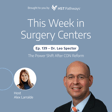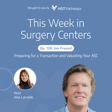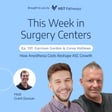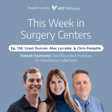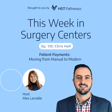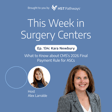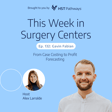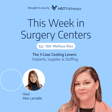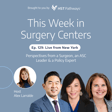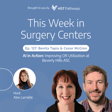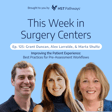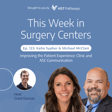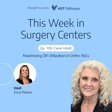
Improving the Patient Experience: Gramercy’s Patient-First Culture & New York’s ASC Momentum
Jeffrey Flynn, Administrator and Chief Operating Officer at Gramercy Surgery Center and President of the New York State Association of Ambulatory Surgery Centers, joins the show to share how Gramercy keeps care personal at scale — training every team member as a patient advocate, keeping families informed, and even empowering nurses to call a case when something feels off. He also gives us insight into what the NYSAASC has been up to and previews what’s ahead for New York ASCs as we approach next month's state conference in Albany.
In our news recap, we’ll cover why anesthesia providers are choosing ASCs, CMS’s proposed 2.6% payment update and additions to the ASC-Covered Procedures List fueling industry growth, ASCA’s July 60-Second Survey on EHR adoption, and a nationwide study in New Zealand using AI to speed stroke imaging.
In or near New York? Join us at the NYSAASC Conference in Albany, NY, at the Desmond Hotel, October 6-8, 2025.
Resources mentioned:
Why anesthesia providers are drawn to ASCs
The policy shifts driving the ASC boom
ASCA Survey Shows Continued Growth of EHR Usage by ASCs
National rapid stroke imaging AI study underway in New Zealand
Brought to you by HST Pathways.
